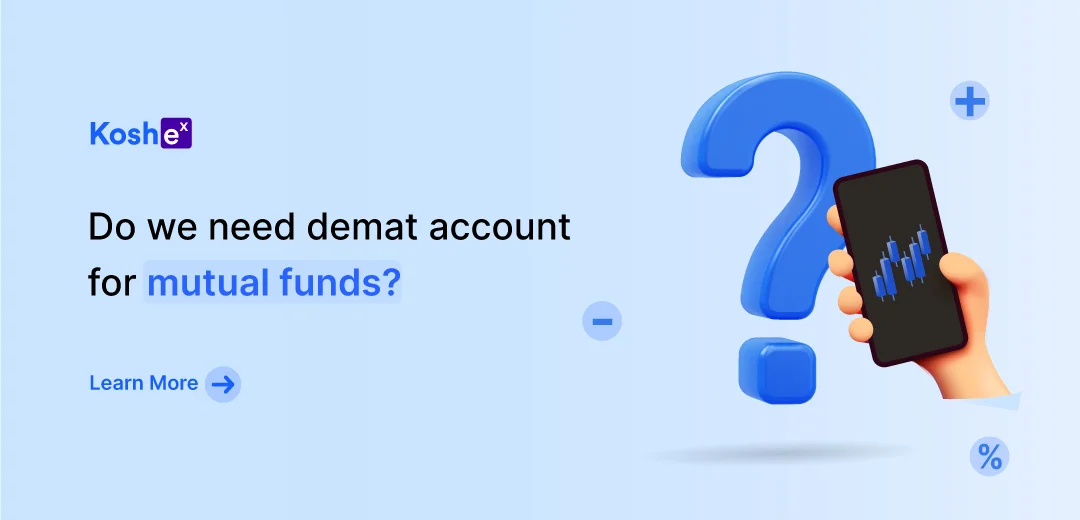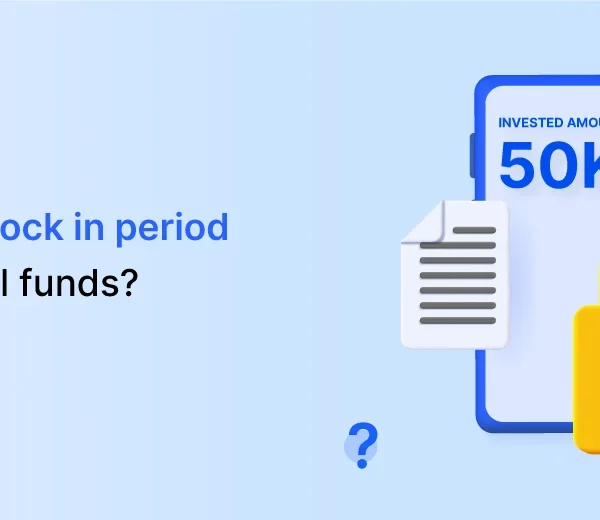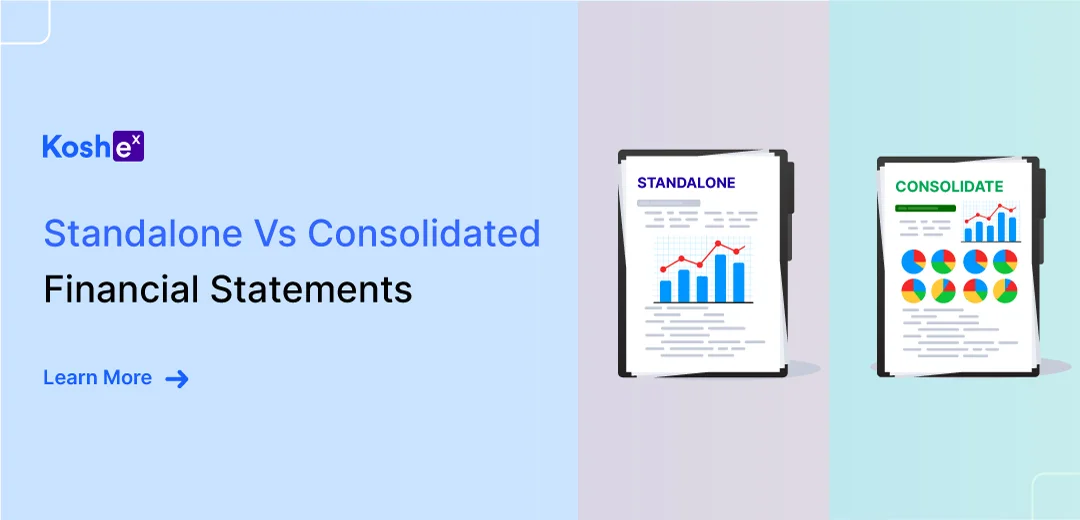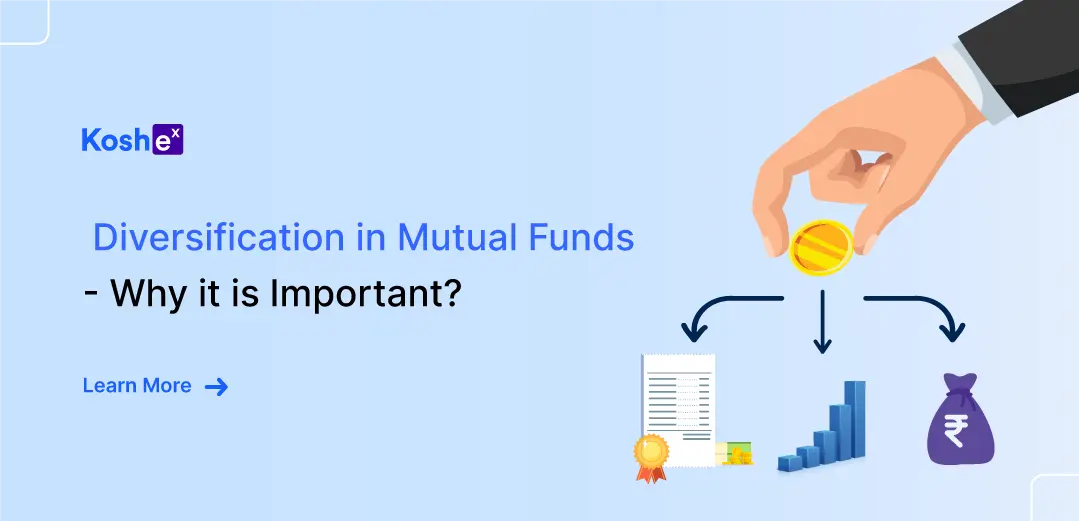The word ‘Demat account’ has been used whenever we discuss anything related to finance. Here’s everything you need to know about it and whether you need one to invest in mutual funds.
Whenever we write any article related to mutual funds, we always talk about how easy it is to start investing in them.
However, the word ‘Demat account’ gets thrown around a lot when we talk about investing and stock markets. But what exactly is a Demat account?
What Is A Demat Account?
A Demat account or Dematerialized Account offers the facility of holding shares and securities in an electronic format. During online trading, shares are bought and held in a Demat account, facilitating easy trade for the users.
A Demat account makes the process of holding investments such as shares, bonds, government securities, insurance, and Exchange Traded Funds (ETFs) easier.
Here’s how a Demat account makes your investing life easier. Let’s say, you want to purchase shares of a company called ABC. Once you buy those shares, they will be transferred to your name.
Earlier, you will get physical shares certificates from the exchange with your name on them. This means, there was a lot of paperwork involved, as each time a share was bought and sold, a certificate had to be created.
In order to remove this paperwork, India introduced the Demat Account system in 1996 for trades on NSE.
These days, you don’t have to do any paperwork and physical certificates are no longer issued. So, when you buy shares from ABC, your purchase will be entered in electronic form, in your Demat account.
If you want to trade or invest in the stock market, you must have a Demat account. Your Demat account number is mandatory for electronic settlements of the trades and transactions conducted by you.
Types Of Demat Account
Regular Demat Account – This Demat account is for resident Indian investors who wish to trade in shares alone and need a storing for their securities.
When you sell your shares, the stocks will get debited from your Demat account and get credited when you purchase the shares during trading.
If you are trading in Futures & Options, you don’t need a Demat account as these contracts do not require storage.
Basic Services Demat Account – These Demat accounts do not have any maintenance charges if the holding value is less than ₹50,000. The charges are ₹100 if the holding value is between ₹50,000 and ₹2 lakhs.
This new account type is for those new investors who are yet to open a Demat account.
Repatriable Demat Account – NRI investors can open a repatriable account to transfer their earnings from the Indian market to abroad.
In order to open this type of Demat account, you will have to close your regular Demat account in India and open a non-resident external account to receive payments.
Non-Repatriable Demat Account – This account is also for NRIs. However, it doesn’t allow the transfer of funds to foreign locations.
But What About Mutual Funds?
You don’t need a Demat account to invest in mutual funds. Earlier, it was compulsory for investors to have a Demat account to buy mutual funds via the exchange.
But, these days, investors don’t need a Demat account to invest in mutual funds. So, how can you invest in mutual funds in India?
Through A Mutual Fund Distributor
Offline distributors help you buy mutual funds via a physical format. However, online distributors provide a complete virtual experience of investing. For newbies, it is wise to invest via a mutual fund distributor as it is hassle-free and uncomplicated.
Koshex is an online mutual fund distributor, which helps newbies choose the right mutual fund scheme for themselves.
All you need to do is tell us your goals and risk tolerance and we will create a hyper-personalized investment solution for you. There is no paperwork involved at all and you can do all this for free.
Through An Asset Management Company
Investors can directly invest in the mutual funds of the respective AMCs via their website. The only downside here is that one can invest in mutual funds only offered by that AMC and no other AMCs.
Hence, this mode limits the investment option to invest in several other mutual funds offered by other AMCs, making it less advisable.
Through A Broker
A broker offers a Demat account to trade on the stock exchange. If investors wish to invest in multiple investment avenues such as mutual funds, stocks, bonds, etc.,
Although it is not needed, you can use a Demat account to monitor all your investments in one place. These accounts charge annual maintenance fees and transaction fees.
The charges may vary for different brokers.
Through Registered Investment Advisors (RIA)
You can invest in mutual funds via SEBI Registered Investment Advisors. RIA does not get commissions from AMCs.
You can invest in direct plans via RIAs and they may charge you a fee for their services. One of the advantages of investing through an RIA is receiving unbiased advice.
Since RIAs do not receive any commission from AMCs, they offer unbiased advise and put your interest over theirs, as codified in AMFI’s Code of Conduct for mutual fund distributors.
Through Registrars and Transfer Agents (RTAs)
RTAs process mutual fund transactions on behalf of the fund houses. If you are transacting via RTAs, you should know which RTA services the AMC and whose scheme you intend to buy.
You can check the RTA websites or go to their websites to find out which AMCs are serviced by the respective RTAs.
The biggest advantage of investing via RTAs is that you can do transactions in multiple mutual funds of different AMCs if the AMCs are serviced by the same RTA.
In The End…
There are multiple ways in which you can invest in mutual funds in India. However, the easiest way to do so is by doing it online and you can do it through Koshex in less than 2 minutes.
All you need to do is create an account with Koshex for free and start your investing journey right away.
If you want us to help you choose the right mutual fund for you, we can create a hyper-personalized investment solution for you, which can help you achieve your goals.
Apart from Mutual Funds, Koshex also offers Smart Deposits, Digital Gold, and Corporate Fixed Deposits to diversify your portfolio and get you higher returns in the long run. Sign up today









Leave a Comment